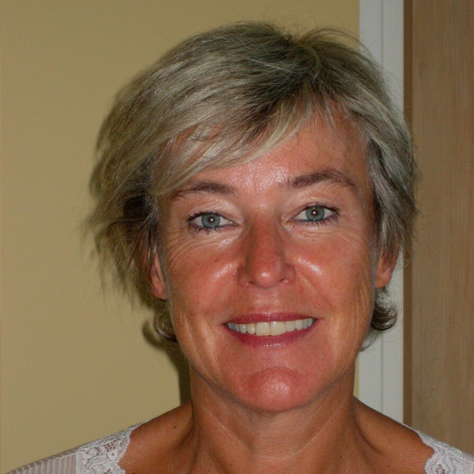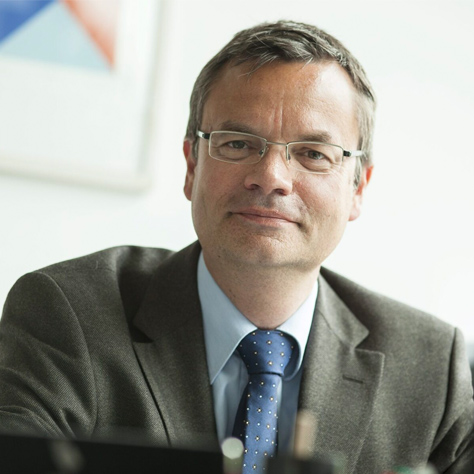touchPANEL DISCUSSION Have the next generation of BTK inhibitors come of age for the treatment of Waldenström’s macroglobulinemia?
Watch a panel of internationally renowned Waldenström’s macroglobulinemia experts discuss the clinical utility of second-generation Bruton’s tyrosine kinase (BTK) inhibitors, and their potential impact on the current treatment paradigm.
Introduction
Dr Roger Owen chairs a discussion with Prof. Veronique Leblond and Prof. Christian Buske contextualizing key attributes of second-generation BTK inhibitors, and how emerging clinical data on their use may improve outcomes and experiences for patients with WM.
1/4 Next ChapterWhat are the failings of first-generation BTK inhibitors?
What are the data supporting the current use of first-generation BTK inhibitors for the treatment of Waldenström’s macroglobulinemia, and what are the remaining unmet needs?
2/4 Next ChapterNew generation, new hope?
How will the second generation of BTK inhibitors help address the current unmet needs?
3/4 Next ChapterSafety's generation gap
How can we best manage the adverse events associated with first-generation BTK inhibitors, and how does their safety and tolerability profile compare with second-generation inhibitors?
4/4 Leave FeedbackOverview & Learning Objectives
Overview
Watch a panel of internationally renowned Waldenström’s macroglobulinemia (WM) experts discuss the clinical utility of second-generation Bruton’s tyrosine kinase (BTK) inhibitors, and their potential impact on the current treatment paradigm.
Dr Roger Owen chairs a discussion with Prof. Veronique Leblond and Prof. Christian Buske contextualizing key attributes of second-generation BTK inhibitors, and how emerging clinical data on their use may improve outcomes and experiences for patients with WM.
This activity is intended for oncology and haematology specialists in Europe.
This touchPANEL DISCUSSION was recorded in June 2020.
Learning Objectives
After watching this touchPANEL DISCUSSION, you should be able to:
- Identify the pharmacokinetic and pharmacodynamic attributes of second-generation BTK inhibitors
- Discuss emerging clinical data with second-generation BTK inhibitors in Waldenström’s macroglobulinemia (WM)
- Discuss the potential of second-generation agents to improve patients’ outcomes and experiences in WM
Faculty & Disclosures

Dr Roger Owen
St James’s University Hospital, Leeds, UK
Dr Roger Owen is a Consultant Hematologist and Hematopathologist based in the Haematological Malignancy Diagnostic Service at St James’s University Hospital, Leeds, UK.
Dr Owen is actively involved in clinical research, playing a central role in several landmark trials in WM. Dr Owen has co-authored national and international clinical guidelines in WM and received the Robert Kyle Award (2014) and Waldenström Medal (2016) in recognition of his contributions to the field.
Advisory boards for BeiGene and Janssen. Honoraria from AstraZeneca, BeiGene, Celgene and Janssen

Prof. Veronique Leblond
Pitié-Salpêtrière Hospital, Paris, France
Prof. Veronique Leblond leads the Department of Hematology at Pitié-Salpêtrière Hospital, Paris, France.
Prof. Leblond chairs the French Innovative Leukaemia Organization (FILO) and heads K-VIROGREF, a rare tumour network with an emphasis on chronic B-cell lymphoproliferative disorders, including WM. Professor Leblond is actively involved in research, leading key trials in WM. In recognition of her contribution to the field, Prof. Leblond has received the Robert Kyle Award (2008) and Waldenström Medal (2012).
Speaker bureau participation for AbbVie, Amgen, BeiGene, Gilead, Janssen-Cilag and Roche. Consultancy/advisory boards for AbbVie, AstraZeneca, Janssen-Cilag, Gilead and Roche. Honoraria from AbbVie, Amgen, AstraZeneca, Gilead, Janssen-Cilag and Roche.

Prof. Christian Buske
Ulm University, Ulm, Germany
Prof. Christian Buske is Medical Director of the Comprehensive Cancer Center, Institute of Experimental Cancer Research at the Ulm University, Germany.
Prof. Buske is founder of the European Consortium for Waldenström’s macroglobulinemia and coordinated the ESMO Clinical Practice Guidelines Working Group on Haematological Malignancies.
Honoraria from AbbVie, Andoz, Celgene, Celltrin, Janssen, Pfizer and Roche. Research funding from Bayer, Celltrion, Janssen, Merck and Roche.

Register to touchONCOLOGY for FREE
- Peer-reviewed journals and expert opinions
- Interactive CME and e-learning modules
- Video conference highlights

